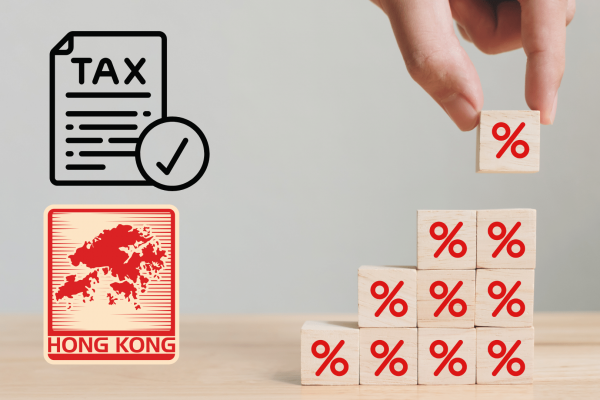Fringe Benefits and Tax Efficiency in Hong Kong for International Employers
For many multinational companies, Hong Kong remains the preferred bridge between Asia-Pacific opportunity and Western capital. Competitive base salaries help attract talent, yet it is the carefully structured fringe benefits package that often seals the deal.
Under Hong Kong’s Salaries Tax regime, however, every non-cash perk must be weighed against the Inland Revenue Department’s rules—principally those set out in Departmental Interpretation & Practice Note No. 16 (DIPN 16).
This article explains how fringe benefits are taxed, why the “convertibility” test matters, and how overseas managers can design cost-effective packages without falling foul of the Inland Revenue Department (IRD).
1. The Statutory Baseline
Before enhancing remuneration with discretionary perks, an employer must first satisfy the Employment Ordinance’s compulsory entitlements.
These include:
- participation in the Mandatory Provident Fund (MPF)
- employee-compensation insurance
- paid annual leave
- sick leave
- maternity and paternity leave
- fourteen statutory holidays
Together, they create a baseline social-protection floor on which all other benefits are layered.
For example, both employer and employee generally contribute 5% of relevant income to the MPF, up to a salary ceiling of HK $30,000 per month; failing to meet this obligation can attract significant penalties and even criminal liability.
2. The Legal Framework: DIPN 16 and the “Convertibility” Test
Unlike some jurisdictions, the Inland Revenue Ordinance does not expressly define “fringe benefits”. DIPN 16 therefore performs the interpretative heavy lifting.
The note confirms that a non-cash benefit becomes taxable when the employee can convert it into cash, or when the employer discharges a personal liability of the employee. This principle—commonly called the convertibility test—originated in the landmark Glynn v CIR litigation and underpins today’s administrative practice.
In practical terms, the IRD treats a benefit as taxable income if the employee can sell it, transfer it, or otherwise monetise it.
Conversely, a benefit that is inconvertible, and for which the employer alone is liable, will in general remain outside the salaries-tax net. The said tax rule is however not applicable to certain benefits, such as holiday journey benefits and education benefits, which are governed by specific tax rules.
3. How Key Fringe Benefits Are Treated
Housing
Housing remains the single most valuable perk in Hong Kong, where residential rents rival those of London or New York.
If an employer leases a flat in its own name and provides the flat to employee for residential use or makes rental reimbursement to the employee for his/her rental expenses incurred, only a notional “rental value”, which is calculated at 4%/8%/10% (depending on the nature of the residence provided) of the employee’s remuneration, will be brought to tax, instead of the actual amount of the housing benefits offered to the employee. This is generally tax beneficial to those non-very high-income employees.
DIPN 16 stresses that direct rental payment by employer to the landlord is the simplest route to tax efficiency.
Cash housing allowances, by contrast, are fully taxable because the employee controls the money’s use.
Holiday-journey benefits
Holiday-journey benefits— All payments by an employer in connection with a holiday journey for the benefit of the employee, irrespective of whether it is convertible into cash and whether the primary liability for the benefit is the employee’s own, will be assessable to tax.
On the other hand, if it could be established that a journey is not for holiday, such as for the relocation of an employee and his family in or out of Hong Kong upon assumption of a new post or termination of an existing post here, as the case may be, the payment made by the employer would be out of the scope of the charge.
Loans
Interest-free or low-interest loans provided for relocation or school fees are usually exempt, provided the employee cannot profit by on-lending the funds and must repay the principal.
The IRD regards such loans as inconvertible because any economic value remains with the employer until repayment.
Cars and expenditure
Company cars are another common source of confusion. Mere access to a vehicle for private use is not taxable if ownership stays with the employer, and the employee is not in any way able to convert the benefit into money. A transfer of title to the employee, however, is fully taxable on the car’s market value at the time of transfer.
Credit-card expenditure is taxable if an employee uses the card for personal purchases that the employer later settles. The payment discharges the employee’s own liability, thereby satisfying the convertibility test.
4. Structuring Benefits for Tax Efficiency
A fringe-benefit plan can be both generous and compliant if four principles are observed.
- First, whenever possible an employer should pay suppliers directly—landlords, airlines, utilities or clubs—rather than reimbursing staff.
- Second, the employer’s contractual contribution should be stated clearly in writing and shown on each pay-slip to evidence inconvertibility.
- Third, the company should maintain documentary proof—leases, invoices, payment records—for at least seven years, because the IRD may request them long after the benefit was enjoyed.
- Fourth, benefits, if taxable, must be reported annually on the Employer’s Return (BIR56A and accompanying IR56B forms), and additional forms IR56E, IR56F or IR56G must be filed on commencement, cessation or departure from Hong Kong respectively. In case there are doubts whether certain benefits are taxable and/or are required to be reported in the Employer’s Return, please seek advice from tax professionals.
5. Compliance Risks and Penalties
Failing to comply with the Employment Ordinance can result in significant penalties of up to HK $350,000 and imprisonment for three years in serious cases of wilful default.
Moreover, where an employer fails to report a taxable fringe benefit, both employer and employee may be assessed for additional tax, interest, and surcharges and/or penalised or even prosecuted.
6. Strategic Considerations for Overseas Businesses
International groups establishing a regional hub in Hong Kong should harmonise local benefit policies with home-country frameworks while respecting DIPN 16.
European employers accustomed to cash allowances may need to recalibrate towards in-kind benefits.
Likewise, American firms that rely heavily on stock-based compensation must plan for Hong Kong’s rule that share-option gains are taxed when the option is exercised or when restricted stock vests, even if the shares are listed abroad.
Early alignment between human-resources, finance, and external advisors prevents payroll surprises and preserves the employer’s global mobility objectives.
HKWJ Tax Law can help
Fringe benefits attract and retain staff. When properly structured, they become an integral element of sound tax planning in Hong Kong’s high-cost environment.
By anchoring benefit design to DIPN 16’s convertibility test, documenting every arrangement, and embracing direct vendor payments, employers can keep their workforce satisfied while maintaining full tax compliance.
When uncertainty arises— which is common with cross-border work—getting tailored guidance from a Hong Kong tax expert is always a wise investment.
If your organisation is ready to optimise its fringe benefit strategy, our team at HKWJ Tax Law will be delighted to assist. Contact us at [email protected] or via the form below.





